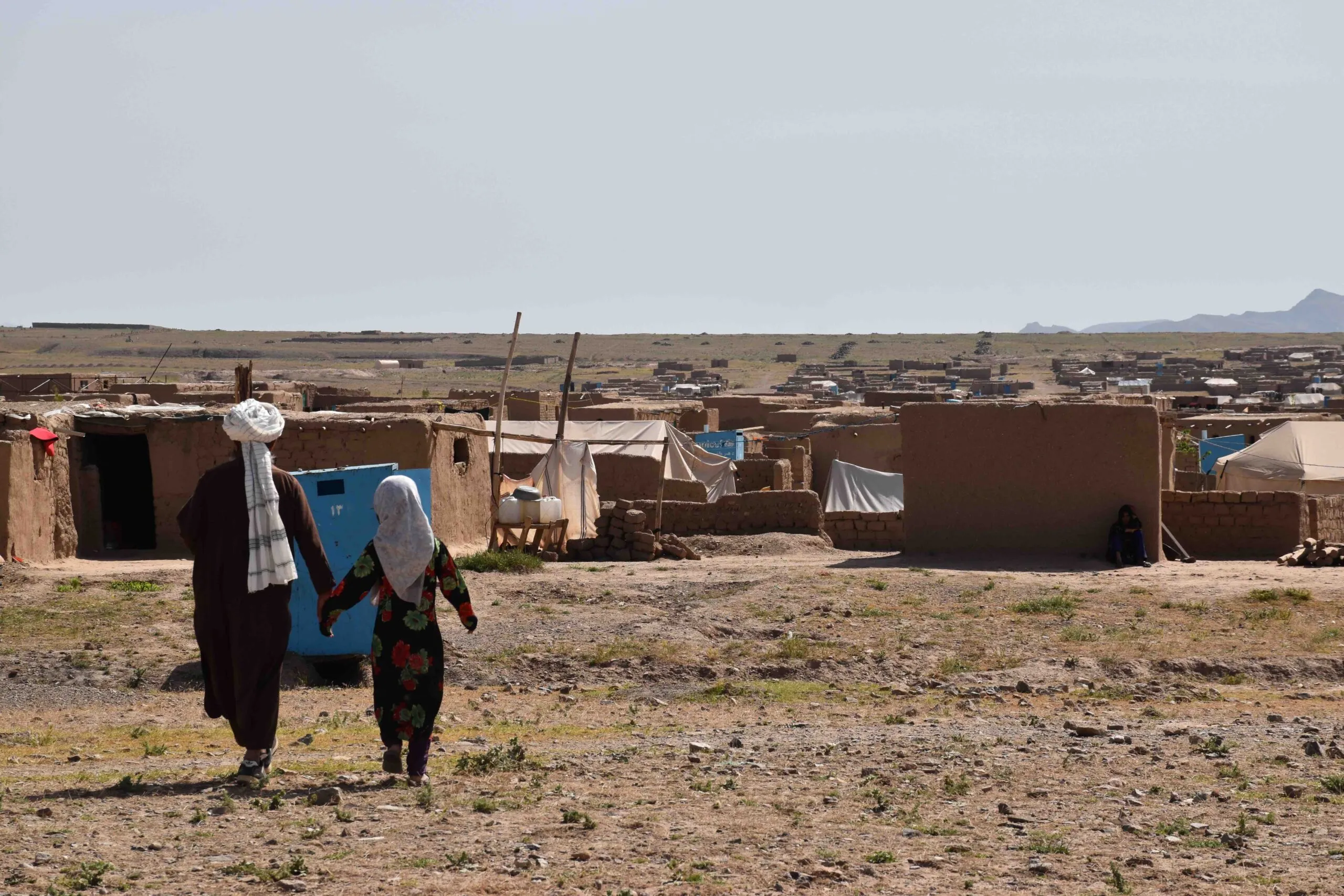(Kabul, 25 February 2022): Concluding a five-day field mission to observe the dire humanitarian situation in Afghanistan, a delegation of senior UN and NGO representatives have found that humanitarian organizations have shown their ability to scale up operations to provide life-saving assistance to people who desperately need aid.
In Kabul and traveling to humanitarian projects in Kandahar, Panjwai, and Spin-Boldak, the team met with frontline aid workers, healthcare professionals, and humanitarian coordination teams. They also spoke with women and men directly affected by decades of conflict and displacement, climate events including recurrent drought, and the severe economic decline in Afghanistan since 15 August.
“The enormity of human suffering and the urgent needs of Afghans was tragically evident from what we saw and the people we spoke with during our mission, but it was also clear that humanitarians remain absolutely committed to deliver principled and unconditional humanitarian assistance to the people of Afghanistan,” said Reena Ghelani, Director of Operations and Advocacy Division at OCHA. “As the humanitarian and economic crises in Afghanistan grow, the resolve of the international community must remain steadfast in support of humanitarians, health-workers, and other frontline responders.”
The group of senior humanitarian professionals visiting Afghanistan represent the Emergency Directors Group, an advisory body that provides recommendations to the international humanitarian community on strategic and operational issues.
“I met a woman who told us she has not cooked in the last 14 days because her kitchen is empty. I have seen first-hand women skipping meals to ensure their children and families are fed first, and this is simply unacceptable,” said Deepmala Mahla, Vice President of Humanitarian Affairs at CARE. “People need access to basic services like food, education, the ability to heat their homes in freezing temperatures, and people need cash to pay for their needs and choices. We as an international community have to come together to serve the people of Afghanistan, because every single day we delay means lives lost.”
Despite an extremely challenging operating environment, including ongoing banking and liquidity constraints, humanitarian organizations operating in Afghanistan are scaling up operations and are achieving their objectives in providing humanitarian aid to vulnerable people in need.
In the last quarter of 2021, humanitarian partners assisted almost double the number of people reached earlier in the year. By the end of 2021, humanitarian partners reached 19.6 million people across the country, 2 million people more than the 17.7 million people initially prioritized in the 2021 Humanitarian Response Plan. By December 2021, 180 humanitarian partners – both international and national – had delivered multi-sector assistance across 397 of the 401 districts of Afghanistan.
“Now is the time to stand by the people of Afghanistan, we don’t have a minute to spare and right now reaching those in the remotest and furthest parts of the country is a priority,” said Margot van der Velden, Director of Emergencies at WFP. “Families have already gone through so much. I met women who want jobs, mothers who have no food and their children are malnourished.’’
The level of humanitarian needs in Afghanistan is unprecedented. Over 24 million people – 59 per cent of the population – now require lifesaving assistance, a staggering 30 per cent higher than in 2021. The second severe drought in four years combined with disruptions to agricultural production have increased the risk of food insecurity and water shortages. Houses and shelters that were severely damaged over decades of conflict urgently need to be repaired, including for displaced people who wish to return home. Livelihoods have been devastated by the economic crisis. People’s limited reserves have been exhausted, forcing many into harmful coping mechanisms to survive, including child marriages and child labour. Women and girls are particularly affected amidst a tightened chokehold on their human rights, participation in society, ability to work, and access to education.
Launched by the UN and humanitarian partners on 11 January, the 2022 Afghanistan Humanitarian Response Plan is the largest humanitarian appeal ever launched for a single country, calling for US$4.44 billion to provide vital humanitarian relief to over 22 million people. If funded, aid organizations can further ramp up the delivery of life-saving food and agriculture support, health services, treatment for malnutrition, emergency shelter, access to water and sanitation, protection, and emergency education.
“Visiting communities in rural Afghanistan highlights just how urgently scaled-up humanitarian assistance, including healthcare, education for girls and boys, and protection, is needed,” said Jeremy Wellard, Head of Humanitarian Coordination at ICVA. “Vital projects are already being delivered by national and international NGOs and their partners, and with further funding and international support much more can and must be done; now and in the future.”
For More Information:
Dorissa White
CARE Junior Press Officer
Dorissa.white@care.org

